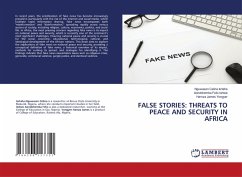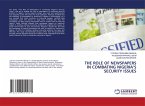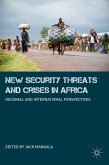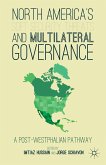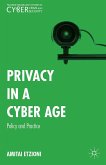In recent years, the proliferation of fake news has become increasingly prevalent, particularly with the rise of the internet and social media, which facilitate rapid information sharing. Fake news encompasses both "misinformation" and "disinformation," spreading rapidly across various sectors of society, including religion, culture, economics, politics, and social life. In Africa, the most pressing concern regarding fake news is its impact on national peace and security, which is currently one of the continent's most significant challenges. Ensuring national peace and security is crucial for the social, economic, educational, technological, cultural, and ideological development of the African nations. This book aims to explore the implications of fake news on national peace and security, providing a conceptual definition of fake news, a historical overview of its impact, methods for curbing its spread, and strategies for identifying it. The findings indicate that fake news exacerbates issues such as religious crises, genocide, communal violence, jungle justice, and electoral violence.
Bitte wählen Sie Ihr Anliegen aus.
Rechnungen
Retourenschein anfordern
Bestellstatus
Storno

